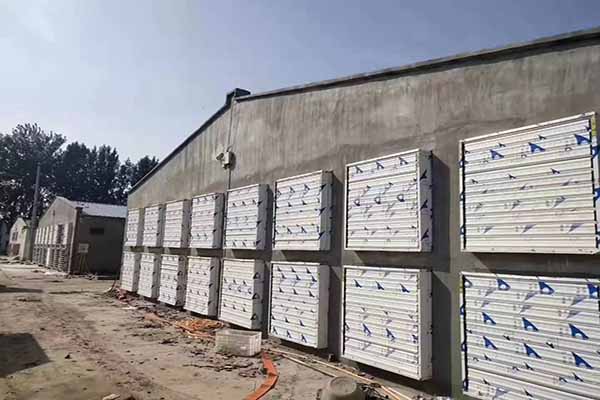Poultry Farm Construction Tips in South Africa
Time : 2025-07-01
When constructing a poultry farm in South Africa, it’s crucial to consider a variety of factors to ensure the farm is efficient, profitable, and sustainable. In this article, we will provide you with valuable tips and insights to guide you through the process of building a poultry farm in South Africa. Whether you’re a seasoned poultry farmer or new to the industry, these tips will help you make informed decisions that can impact the success of your farm.
1. Legal and Regulatory Compliance
Before starting the construction of your poultry farm, it is essential to understand the legal and regulatory requirements. South Africa has specific regulations regarding the construction and operation of poultry farms to ensure animal welfare, environmental protection, and food safety.
– Pest Control Act: Ensure compliance with the Pest Control Act to manage diseases effectively.
– Animal Health Act: Follow the guidelines for disease prevention and control measures.
– Biodiversity and Environmental Management Act: Ensure your farm design includes measures to minimize environmental impact.
2. Site Selection
The location of your poultry farm can significantly impact its success. Consider the following when choosing a site:
– Climate: Select a site with a climate that supports optimal poultry growth. Avoid areas prone to extreme temperatures or harsh weather conditions.
– Proximity to Feed Suppliers: Being close to feed suppliers can reduce transportation costs and ensure a steady supply of quality feed.
– Accessibility: Ensure the site is easily accessible for the delivery of feed, equipment, and products.
3. Farm Layout
A well-planned layout is key to the efficiency and functionality of your poultry farm.
– Zoning: Clearly define zones for different activities, such as brooding, growing, and laying.
– Sanitation: Incorporate measures for maintaining high levels of hygiene, including easy access for cleaning and waste disposal.
– Space Allocation: Allocate adequate space for each bird to prevent overcrowding and reduce stress.
4. Building Materials and Design
The choice of building materials and design should consider durability, comfort, and cost-effectiveness.
– Ventilation: Ensure good ventilation to maintain air quality and temperature control. Use natural ventilation whenever possible.
– Insulation: Use appropriate insulation to regulate temperature and reduce energy costs.
– Roofing and Windows: Invest in quality roofing and windows to protect against weather elements and enhance security.
5. Equipment Selection
Selecting the right equipment is crucial for the efficient operation of your poultry farm.
– Feeders and Drinkers: Choose equipment that allows for easy access and minimal waste. Ensure the feeders are compatible with the type of feed you use.
– Pullets and Brooders: Invest in high-quality poultry houses and brooders to provide a safe and comfortable environment for chicks.
– Manure Removal Systems: Choose systems that are easy to clean and maintain while minimizing labor and waste.
6. Biosecurity Measures
Implementing biosecurity measures is vital to prevent disease outbreaks.
– Fence and Barriers: Use secure fences and barriers to protect your flock from predators and external pathogens.
– Access Control: Limit access to the farm to minimize the risk of disease introduction.
– Sanitization Procedures: Establish regular sanitization procedures for vehicles, equipment, and personnel.
7. Energy Efficiency
Energy consumption is a significant cost for poultry farms. Consider the following to improve energy efficiency:
– Solar Power: Install solar panels to reduce electricity costs.
– Efficient Lighting: Use LED lighting to reduce energy consumption.
– Automated Systems: Implement automated systems for lighting and ventilation to optimize energy usage.
8. Training and Staff Management
Invest in the training of your staff to ensure they understand the importance of good management practices.
– Health and Nutrition: Train staff on poultry health, nutrition, and disease prevention.
– Maintenance Procedures: Ensure staff are trained on equipment operation and maintenance.
– Record Keeping: Establish a system for accurate record-keeping to monitor performance and identify areas for improvement.
Conclusion
Building a poultry farm in South Africa requires careful planning and consideration of various factors. By following these tips, you can create a farm that is efficient, profitable, and sustainable. Always remember to prioritize compliance with legal and regulatory requirements, invest in quality equipment, and maintain good biosecurity practices. With the right approach, your poultry farm can become a successful venture in South Africa.












